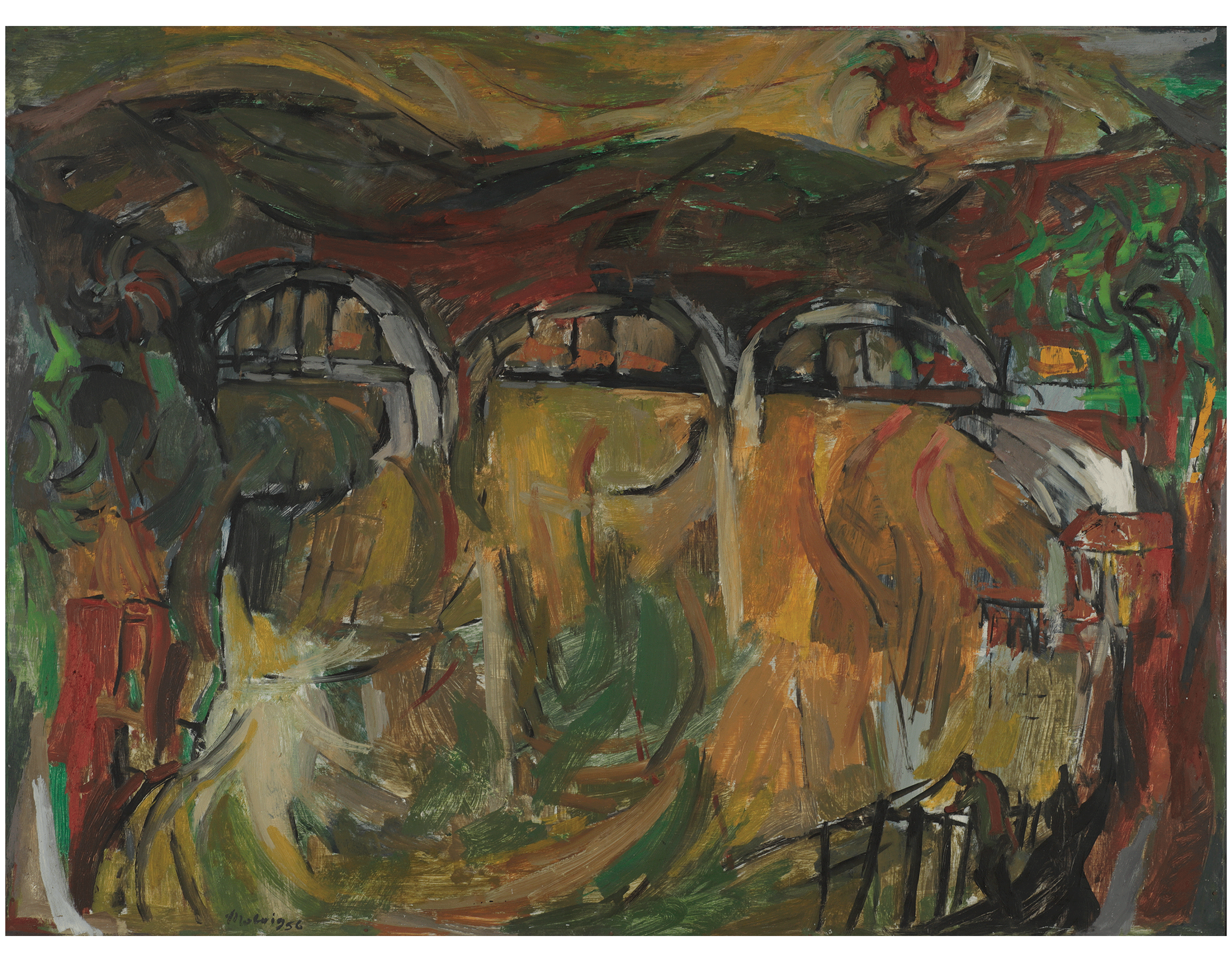There are 15 main bridges crossing the river. Given the river’s key role in Brisbane’s landscape and imagination, it is no surprise that several of these bridges have reached iconic status.
VICTORIA BRIDGE
Spanning the river from Queen Street in the CBD to Melbourne Street in South Brisbane, the Victoria Bridge connected what were two quite separate settlements of the city.
It has undergone four iterations. The first temporary wooden structure was built in 1865 but collapsed two years later. The first permanent structure was built in 1874 and washed away in the 1893 floods. This was replaced by another in 1897, which was then demolished in 1969 to make way for the current bridge, opened the same year.
One of the stone arches from the 1897 bridge remains next to the South Brisbane end of the current bridge, captured in Lloyd Rees’ sketch Pylon Old Victoria Bridge (1914). It houses a memorial to 11-year-old Hector Vasyli who was accidentally killed during a parade marking the end of the First World War in 1918.
The Victoria Bridge has been a main thoroughfare for protests through the city over its history, including for Indigenous rights, climate action and marriage equality.
STORY BRIDGE
The Story Bridge was built during the Great Depression, between 1935 and 1940, to boost employment during the economic downturn. At the peak, 400 people were employed to work on the bridge, four of whom tragically lost their lives during its construction.
When it initially opened in 1940, the bridge was tolled. In its early days, the bridge went by many names, including the Brisbane River Bridge and the Jubilee Bridge, before the name ‘Story’ was selected in honour of public servant John Douglas Story.
The Story Bridge is perhaps one of Brisbane’s most iconic structures. It features strongly in contemporary artists’ depictions of the city, such as in Robert Brownhall’s Story Bridge at Dusk (2010) and Robert Moore’s Brisbane River (2006).
WILLIAM JOLLY BRIDGE
The Grey Street Bridge, renamed the William Jolly Bridge in 1955 to commemorate the First Lord Mayor of Brisbane, connects North Quay with South Brisbane at Grey Street.
Opened in 1932, it has remained a common subject for painters who have interpreted it in very different styles, from Hubert Jarvis’ light, neat watercolour rendering in View of Brisbane from Coronation Drive (1946) to Jon Molvig’s dark and abstracted Grey St Arrangement (1956). We don’t know for certain why so many artists have been drawn to paint this bridge, but it is likely the appeal of its repeated Art Deco arches that create a rounded reflection in the river below.
